The post We Did It! appeared first on VCFA Writing and Publishing Blog.
]]>We, the second year students in the Writing & Publishing program have now proudly earned our Masters of Fine Arts degrees. Thirteen of us have walked the virtual aisle and moved the tassels on our figurative mortarboards. It’s been a long strange trip for us, these two years in Vermont, with Covid changing the parameters of our time here barely six months into our first year. But we persevered and finished our studies, completed our theses, and muddled on through.
I’m being oddly hyperbolic here, I must admit: though Covid-19 caused a fair amount of muddling, the program did not. We, the class of 2021 have nothing but respect for our amazing and unique program, the first of its kind. Our faculty has been fabulous, from the trusty stalwarts of full-time and in-state instructors such as Erin Stalcup and Miciah Bay Gault, to our amazing program director, Rita Banerjee. Rita has had our back through everything and is committed to serving our minds. Lizzy Fox ably and lovingly served as the assistant director (and the person you went to if you had any questions whatsoever about how things worked at our school). Lizzy left to pursue a teaching career, and the delightful Sarah Leamy has been herding us cats of late. She fit right in and has been a pleasure to work with. The myriad module instructors have been wonderful too, giving us slices of their lives and work as poets, fiction and CNF writers, agents, and publishing professionals. They all had much to teach, and we lapped up their knowledge. I for one am incredibly grateful for the variety of classes I was able to take in two short years.
However…
It is with great sadness that I must announce the demise of our fine program. There are myriad reasons for this, we’re told, but the bottom line is, well, the bottom line. Without the pandemic we might have survived—after all, we had our largest class size in our programs history due to join us last September. Sadly, that number shrank precipitously once it was announced that classes would be online, and the full-residency program was to be phased out. The reality is that it’s a different sort of student that wants to live on campus versus the student who likes the low-res model. This program must have been doing something right and wonderful, though, because Colleges around the country—including Emerson in Boston—are jumping on the Writing & Publishing program bandwagon. Plus, there were those great write-ups of about our program in Poets & Writers Magazine…
But…
Once again, we will persevere, just as we did when the world shut down. A few of us are going on to PhD programs, some will go on to fellowships and to seek certificates. Some are teaching, and all of us are intent upon shopping our novels and memoirs, and books of poetry. One of our number just had a beautiful baby (so many Congrats, Imogen!) and one lucky soul is moving to Ireland. Even our faculty will do well, with several of them hired on at established universities. They will be fine, and we will be fine. But boy, will we miss each other, and Montpelier, and the community of writers we only just started to form.
Never-the-less…
I don’t want to get maudlin. so I won’t. Instead I will get back to the original point: Class of 2021, we did it! And I say to each and every one in my cohort CONGRATULATIONS!!!! Huge success to the lot of you, keep in touch, and happy writing!
The post We Did It! appeared first on VCFA Writing and Publishing Blog.
]]>The post A Review of Doubting Thomas appeared first on VCFA Writing and Publishing Blog.
]]>Matthew Clark Davison
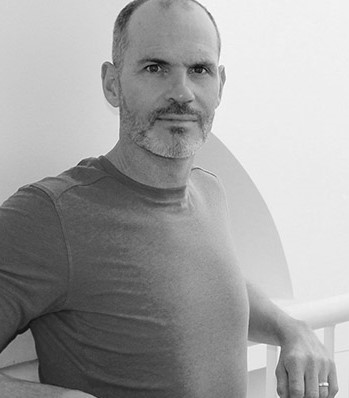 Matthew was my favorite teacher at SF State. He is known for being a hard but caring teacher, for his rigorous classes, and for expecting students to produce outstanding work. Matthew is not the teacher for the faint of heart—or for those who aren’t serious about their writing. Slackers usually drop his classes within the first couple of weeks, leaving a nice, solid core of serious writers. I loved his classes, and so did the rest of the students who stayed.
Matthew was my favorite teacher at SF State. He is known for being a hard but caring teacher, for his rigorous classes, and for expecting students to produce outstanding work. Matthew is not the teacher for the faint of heart—or for those who aren’t serious about their writing. Slackers usually drop his classes within the first couple of weeks, leaving a nice, solid core of serious writers. I loved his classes, and so did the rest of the students who stayed.
My favorite class was “The Craft of Writing: Characterization.” Matthew taught us how to make our characters sing, to be rounded and full. One of the best bits of writing advice he ever gave me is to give the antagonists good sides as well as bad. That’s such a logical, simple thing, but easy to forget: we want our bad guys to be bad. What we forget, however (without teachers like Matthew to remind us) is that characters that are all evil are flat, and stereotypical, and boring. Nobody wants to read about that guy. But when you add a tragic backstory, or a smidge of tenderness, or they kind way they treat old ladies, or, or, or…you end up with a character that won’t stay flat on the page. A character that leaps out and keeps the reader interested.
Matthew is not just good at teaching concepts like this, he’s also adept at infusing them into his fiction, as is evidenced in his new novel.
Doubting Thomas
Before I get into how beautifully Matthew draws his characters, let me give you an idea of the plot:
The first major scene of the story takes place in the recreation building of an upscale private school in Portland, Oregon. It is late May 2013. For twelve years Thomas has been a much loved fourth grade teacher at Country Day School. On this day he’s there with his lawyer for a town-hall meeting with parents, administration, and law enforcement. Thomas has been wrongly accused of molesting one of his charges, a little boy named Toby. The Sheriff speaks, the D.A., the child’s psychologist. The investigation and pursuant testimony absolves Thomas, but the damage is done.
Thomas’s whole life has changed, but, to this point he had remained faithful, thinking this will all blow over, because, of course, he’s innocent, and all of these progressive parents have known him and loved him for years. He say’s of the accusing parents “The Jays aren’t vindictive, they’re confused.”
Unfortunately, being innocent doesn’t change the outcome. With a single lie Thomas has lost a career that was more calling than job. His good name disappears, as do friends and confidants. His best friend up until that point had been Mercy, the school’s principal, who ends up playing politics instead of choosing loyalty. Thomas receives a large settlement, but his lawyer tells him that he will never teach again.
And, as pages reveal one after another, this is not the first devastating loss Thomas has been through, nor will it be the last. We visit these losses, and learn what Thomas learns about life along the way throughout the novel.
What I loved
Oh, so much! From lines like “The day smelled of beer, and cigarettes, and the first bloom of Jasmine;” (How lovely is that?) To showing us beautifully atmospheric setting: “Her office sparkled. All glass and wood, surrounded by Country Day’s near-choking foliage, wet and green, the drops on the glass and the glass itself created tiny prisms that fractured light from the early morning sun;” (yeah, another thing Matthew taught us to use: concrete details!) Then there are the lovingly drawn characters, such as Mercy:
She’d looked much younger in person than in the photograph on the website. In person she wore glasses, and her hair looked natural with caramel-tinted highlights along the tops and ends, which added even more dimension to her face with its soft angles and rounded lines except for the sharpness of her cheekbones. Her gestures, like using the muscles around her nose to move her glasses higher on it’s bridge so she could continue to use both hands for papers, revealed a nerdiness that endeared her to Thomas because he recognized them in himself and other teachers. On the websites photo she’d worn contacts and sported a wig…a style Thomas associated with Diahann Carrol, perhaps because, in person Mercy’s features had also reminded Thomas of the actress, even if her body language did not. Both had arched brows and wide brown eyes.
What I love so much about this paragraph is how it not only shows us what Mercy looks like—Diahann Carroll, lucky woman—but also shows us who she is, with the nerdiness and the glasses and the wrinkles of her nose.
Oh, and by the way, all three of these examples are in the first chapter. My mentor delivers!
But wait, there’s more.
The Social Commentary
This novel is set smack dab in the middle of Obama’s time in office, 2012-2015. This was, if you remember, a time in which we liberals thought we were living in a “post” society: Post-racist, post-sexist, post-homophobic. We hadn’t quite gotten to post-economic inequality, but we felt we were headed in that direction.
But, of course, this was also a time of push-back: Proposition 8, the California amendment against same-sex marriage was voted in, only to be overturned in both California courts and by SCOTUS. Bakeries were refusing to make wedding cakes for same-sex couples, and—SHOCKER—we not only had a Democratic president, but he was a black man to boot! The liberal paradise that we thought we were finally attaining was not to be (at least not then).
Matthew deals with these issues well in his fiction:
Push-back and Homophobia
In Chapter 3, Thomas meets his brother James at the Colorado Springs Airport. James greets his brother in what Thomas calls his “Look-at-me-I-have-a-gay-brother bit.” In other words, James loudly calls Thomas “Homo” and “faggot.” This garners the attention of a military man, who warns Thomas that he and his “boyfriend” need to watch their behavior around his kids. James wants to go after the guy, but Thomas, who is aware of the realities of life as a gay man, reminds him that people in this area carry guns, “assault rifles.” James calls Thomas paranoid and talks about a black president, and gays on TV, which Thomas shuts down brilliantly: “Don’t you get it?….What always comes after progress? Backlash and revenge.”
I think we can look at the last four years in this country as validation of that sentiment.
A Black Man’s Perspective
One of my favorite characters in this book is Reggie, Thomas’s brother-in-law. Not only is he as lovingly drawn as Mercy, he has a lot of very wise things to say. Things that—back to my original point—show the reader the depth and complexity of who he is. Early on we learn that Reggie is charming and opinionated-but-engaging. He seems nice, and he seems kind. Later, however, towards the end of the book is where we find out who the man is. It’s then that we learn what he thinks and feels.
We learn that Reggie is, above all else, a realist. He sees the world clearly, with no haziness regarding subtext and *ifs.* Reggie tells Thomas that cops hate him—a black man—first, then other brown people, then gay people like Thomas. He also states that he knows Thomas did NOT molest the boy at school because “Openly gay men do not molest fourth graders,” but continues on to talk about how the judgement of Thomas as a gay molester is there to say, as are the issues he has as a black man. (There are also some fairly amusing and pretty much on point mini-rants about the state of gay and black men in this country.)(I’m going to leave it to you to read those. They’re worth it.)
In getting to the crux of the conversation, Reggie echoes what Thomas said to James at the airport:
Liberals think that we’re post-race now because of Obama—and there are things to appreciate about him—but no single individual is a savior. His cabinet is made up of people for whom the system worked. Few of the people who were truly suffering before. And they’re suffering less now…I don’t want to run for office either, so I need to quit criticizing. Mark my words, though. Almost every African American and homosexual I know thinks we’re in a moment of progress. But you watch. There will be backlash, my friend.
Remember what I said about the last four years? Yeah.
But Honestly…
…this book isn’t all about the ills of society. In fact, it’s most about family, and resilience, and love. It’s about picking up the pieces when life throws you a year or three of disaster after disaster, heartbreak after heartbreak. In the end, Thomas has turned his life around, forging a new and happy existence. One of my favorite kinds of stories.
Doubting Thomas is set to be released on June 8th. You can find out more about Matthew here.
The post A Review of Doubting Thomas appeared first on VCFA Writing and Publishing Blog.
]]>The post Community Enrichment Class for May appeared first on VCFA Writing and Publishing Blog.
]]>Let me start by introducing them.
Molly MK Martin
 Molly was born and raised in Minnesota, but the world travel bug hit her early: she spent a year of high school as an exchange student in Paraguay. As an adult she joined the Army and was deployed in Afghanistan and Iraq, which led to a government job stateside. She lived in Eugene, Oregon for a bit, where she got a degree in Linguistics from U of O.
Molly was born and raised in Minnesota, but the world travel bug hit her early: she spent a year of high school as an exchange student in Paraguay. As an adult she joined the Army and was deployed in Afghanistan and Iraq, which led to a government job stateside. She lived in Eugene, Oregon for a bit, where she got a degree in Linguistics from U of O.
She and her family moved to North Carolina, and then, through a state program to lure remote workers to this state, ended up here in Vermont. One thing about living in Vermont, though: she missed her writer friends. They had been plentiful in Eugene. In looking to find fellow scrivener souls she stumbled across VCFA and realized that the Writing & Publishing program would be a perfect fit. We are lucky to have her! (You can read more about Molly, including her publications, on the poster at the bottom of the page.)
Dexter Loken
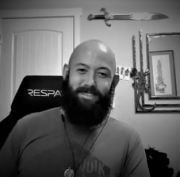 Dex is a California boy with nomadic genes. He served in the Peace Corps in Tanzania and has traveled extensively, so far visiting and/or living in 23 countries. The certificate in publishing drew him to VCFA. He then decided to stay for the long haul and get his MFA. As far as writing goes, he finds himself writing short form Creative Non-Fiction, but his true calling is long form Speculative Fiction. He says—and this is true of Molly as well—that his ideas are simply too big for short stories.
Dex is a California boy with nomadic genes. He served in the Peace Corps in Tanzania and has traveled extensively, so far visiting and/or living in 23 countries. The certificate in publishing drew him to VCFA. He then decided to stay for the long haul and get his MFA. As far as writing goes, he finds himself writing short form Creative Non-Fiction, but his true calling is long form Speculative Fiction. He says—and this is true of Molly as well—that his ideas are simply too big for short stories.
He’s been “stuck” in California since Covid started, but at least he has his black lab mix to keep him company!
The Class
This class is about the nuts and bolts of writing speculative fiction. It is a how-to class for the writing of magic and science.
There’s a lot more telling in speculative fiction, because, as Dexter says, it needs it. You’re building an entire world, unlike, say, most literary fiction which takes place in a world very much like our own. But, on the other hand, you don’t want to give too much exposition. You don’t want the dreaded info-dump. So how do you write a world that is convincing without too much telling? According to these two fine writers you have to know the backstory of your world. You have to know what makes your world tick.
But—and here’s the kicker—you don’t necessarily have to write everything you know about this world. If you know, and stick to, the rules of your world, readers will get it. There’s a caveat there, however: The world of your story doesn’t necessarily have to follow the rules of our world, BUT, once you have established the rules, you must stick to them.
In other words, if gravity doesn’t exist in your world on page twenty-three, or time moves differently on page fifty-five, then gravity and time must behave the same on page three-hundred-and-two. Otherwise, according to Molly—and I concur—you’ll “piss-off your readers.”
And Then
The two will also go into some of the misconceptions about speculative fiction. Molly brought up the idea that speculative fiction is formulaic. She says (and do I even have to tell you that I concur?) that what some see as formulas are actually scaffolding upon which a good story is built. Rather than constrain a story, it supports the story. It allows it to be bigger—and better—than it could’ve been otherwise.
For his part, Dex wants to get into the misconception that writers write speculative fiction because it is somehow “easier” than other genres. He says (yeah, yeah, yeah, I know you know that I concur) that speculative fiction is just as difficult to write as other genres. Each genre has its challenges, and spec-fic is not wanting in that regard.
So, go to this, our last community enrichment class. You’re sure to have a blast, and your writing will improve as well! Tickets and information here.
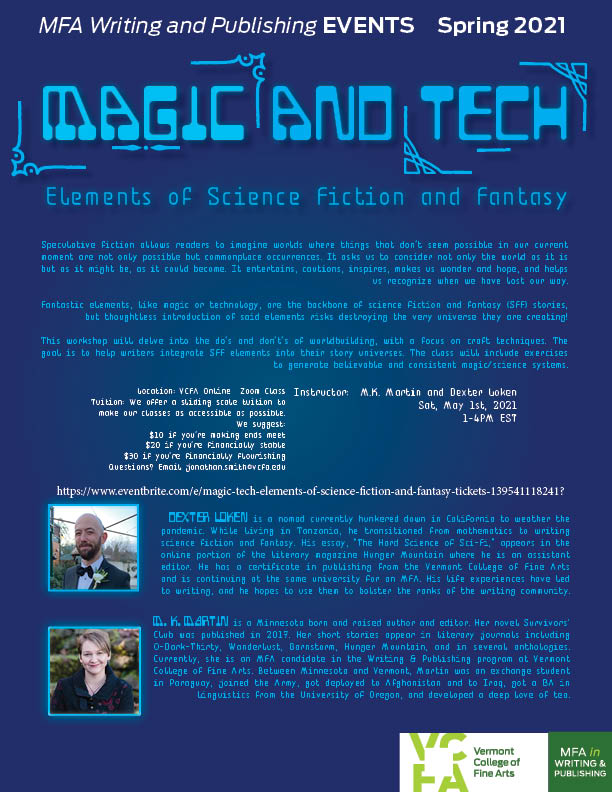
affiliate tracking url | Men's Footwear
The post Community Enrichment Class for May appeared first on VCFA Writing and Publishing Blog.
]]>The post Community Enrichment Class for April appeared first on VCFA Writing and Publishing Blog.
]]>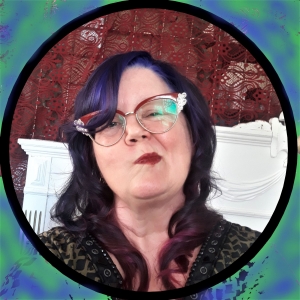
Nah! Too silly even for me!
So, rather than interview myself, I’ll just give you an idea of my background, my literary loves, and what inspired me to create my community enrichment class, entitled Leaving Europe Behind: Writing (Indigenous) Urban Fantasy for the Americas. Info Here
Who Am I? Part I
I’m an old broad with a young heart. No really. What keeps me that way is that I’ve wanted to be old since I was, well, young. I grew up in Los Angeles in the 60s and 70s, the daughter of an Anglo dad and an American Indian mother. (I’m enrolled in the Delaware Indian Tribe of Oklahoma, though I also have Wyandotte and Creek forebears.) My father’s family didn’t arrive here from England and Scotland until the last years of the 1880’s. I know, I’m diving in deep here, but my heritage matters when it comes to the class.
Knowing who I was growing up was a whole lot easier on the Anglo side. A lot of Anglo-Saxons, Celts, etc. made their way to these shores. White people from the British Isles were everywhere. The Indian heritage was a bit harder to come to know: my mom always told my brother and I “You are an Indian, and don’t you forget it!” I was proud of being Native, but I never really knew what that meant. Movie Westerns were the closest thing I had as a kid to learning what Indians were like—I didn’t meet another Native that wasn’t part of my extended family until I was in my mid-twenties—but let’s face it, we all know how those movies were at fair representation.
Who Am I? Part II
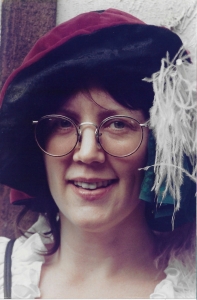 By the time I was twenty I had begun making a life at the Renaissance Pleasure Faire. I graduated from Fashion School and opened a costuming business, making and selling period garb faire to faire. I also built my booths, utilizing the carpentry skill that I learned from my dad, a professional
By the time I was twenty I had begun making a life at the Renaissance Pleasure Faire. I graduated from Fashion School and opened a costuming business, making and selling period garb faire to faire. I also built my booths, utilizing the carpentry skill that I learned from my dad, a professional 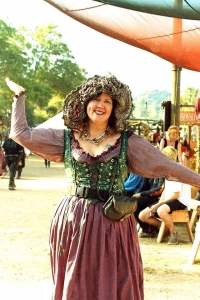 cabinetmaker. Needless to say, I was totally besotted by all things English/Scottish/Irish, from Celtic music, to English Punk, to Faerie Stories, myths, and tales.
cabinetmaker. Needless to say, I was totally besotted by all things English/Scottish/Irish, from Celtic music, to English Punk, to Faerie Stories, myths, and tales.
That lasted a good thirty years, but eventually I needed a change. The life was hard work, and the economy was getting worse and worse for the self-employed. By chance I began writing again, something I hadn’t done since I started my business. I found my passion once more and decided to go back to school.
I had been reading Native American authors for a couple of decades, since I saw the movie Smoke Signals, written by Sherman Alexie. Being back in college gave me access to American Indian Studies classes. I was finally trying to figure out what “being an Indian” actually meant. I dreamed of teaching San Francisco State’s American Indian Literature class, co-run by the AIS and Creative Writing Programs. (Originally, I’d wanted to take the class but—while it was still in the catalog for both departments—it wasn’t being taught.) I also dreamed (and still do) of teaching Creative Writing and Native Lit. at tribal colleges. I ended up utilizing Independent Studies classes here at VCFA to earn myself an unofficial minor in American Indian Literature.
Who Am I? Part III
I had a zinger of a realization a year or so ago: I realized that in the first part of my adult & career life I was following my dad’s path. We were both makers, building things, out of wood, and cloth, and various asundry things. It was about the visual, and it was about precision, and we were both very good at what we did. I was also concentrating on my English/Scottish/Irish heritage, through the Faire and all the literature I really, really, really loved. Arthurian Tales to Neil Gaiman, with scads of others in between.
When I began to devote myself to writing, however, I was following my mom’s path: she had been an English teacher, before she moved with her widowed mother and brothers and sister from Oklahoma to California. She had also been a writer, or at least she had wanted to be, but taking care of her mother, being the breadwinner, and then marrying and having kids wiped that dream away. We’re talking the mid-1940s through the 1960s, give or take, so that was pretty typical in those days. It’s too bad, though. From what I’ve read of her work, she was pretty good.
I had also left the Anglo-centric world of the Renaissance Faire and turned my attention to Indian studies, my mom’s heritage.
Pretty woo-woo cool, huh?
The Class
The idea for this class arose from that zinger. The melding of my two heritages together, to make a NEW cohesive whole. Not only in myself, but also in the words I love to read. When I discovered there were faeries in native literature, I was so excited. I began to study these “little people” as many tribes call them. Then I thought about how I could utilize these beings in urban fantasy, which is one of my favorite sub-genres. “What if American Gods actually had some American gods in it?” I thought. “What if Anansi had been Iktomi?”
I’ve been tinkering with how to make this idea work. It’s a good one, I think, honoring the mythical beings that come from this continent’s soil. Giving them back their place in this land—well, no, not really in the land, they are of it. But perhaps we can give them a place in our hearts. I’m enjoying this so much, and I’ll happily share the fun in class: First, we’ll read work of three of the masters of urban fantasy (de Lint, Gaiman, Jemison) to give students a feel for the genre. Then we’ll look at the legends and folktales of Jo-gah-oh, Puk-Wudjies, Wematagunis, and many more. After that, let the games begin. Literally. We will play prompt & write games and create stories of these beings interacting with our contemporary world. I can’t wait to see how my students interpret what I teach them. It will be a great afternoon!
For more information click here.
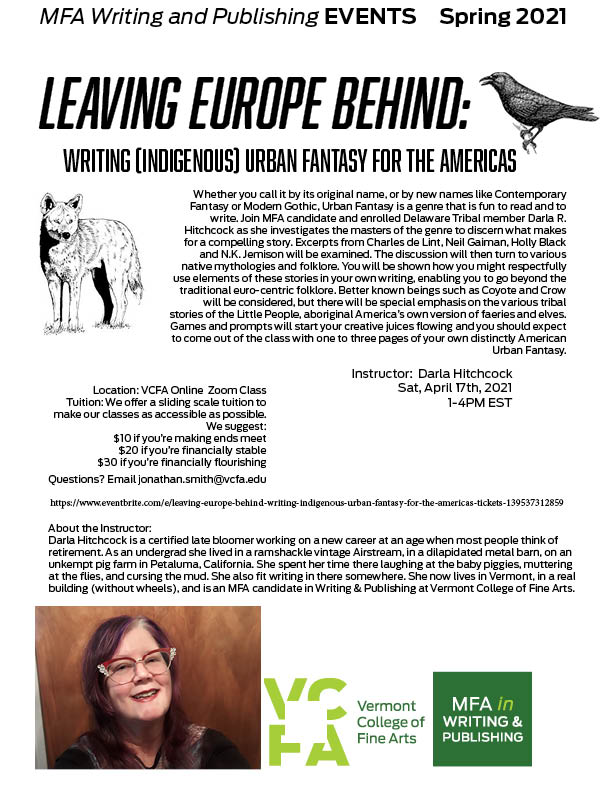
Running Sneakers Store | GOLF NIKE SHOES
The post Community Enrichment Class for April appeared first on VCFA Writing and Publishing Blog.
]]>The post My Story: How I Lost and Found My Superpower appeared first on VCFA Writing and Publishing Blog.
]]>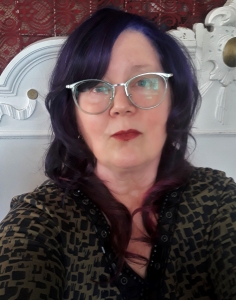 I don’t remember falling that night.
I don’t remember falling that night.
I remember being at a friend’s house, sitting at the table watching hands of poker being dealt. I remember snuggling close to a man who, thirty years earlier, I had almost loved. I remember getting up to go to the bathroom and closing the door behind me. I remember… nothing else of that evening, except, in retrospect and days later, when flashes showed me images I might have seen—maybe. The most vivid image was of gleaming white tiles. I don’t remember if I tripped on a loose rug or slipped on wet linoleum. I don’t remember falling or waking up on the floor. I don’t remember being unconscious and I don’t remember being back at the party. It’s all gone, hours of my night, hours of my life.
I do remember waking up the next morning, reaching up to examine my painful head and finding it swollen from the nape of my neck up past the crown and down the other side. I was dizzy, wobbly on my feet, and fuzzier than the fog that rolls over the West Marin Hills on a summer evening. I had breakfast with the gang, got in my car and drove home.
Drove home. I’m surprised I made it.
I spent the rest of that Sunday alternately sleeping and studying Chaucer for a class that I had to pass to get my BA. And I had to get my BA so I could start Grad school in 5 weeks. (There was no plan B) I read for ten minutes at a time, then slept for twenty.
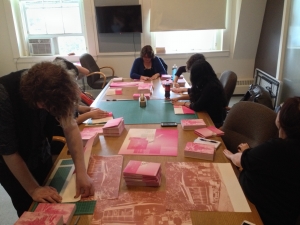
Being a student is number four on the list of “personal, psycho-social, or environmental factors that can negatively influence recovery post mTBI.”(Ontario Neurotrauma Foundation)
I did everything I was supposed to do—or so I thought—I went to the doctor the next day. I watched for the symptoms that would require an ER visit. I rested as much as I could for a student in two accelerated classes finishing a degree. I mustered on and waited to get better. I continued like this for months, even after graduating, even after starting grad school. I constantly downplayed the seriousness of my condition, always thinking that everything would all return to normal next week, or the week after, or the week after that…
But I didn’t get better. Not really. Yes, in the first few weeks after my fall, the fog cleared, retreated over the hills in my mind till I could, for the most part, think. As time passed, I could stay awake longer than ten minutes at a time, the dizziness abated, the nausea went away, but…
According to TBI.org, early intervention is key in brain injuries. I didn’t get early intervention. My friends that night at the party convinced me that I didn’t need to go to the hospital. (Or so I was told) After my first doctor visit I was so certain that my TBI was nothing to be concerned about that I waited nine months before seeing a doctor again. My symptoms had to cascade, and my life had fall apart before I acknowledged that it might not have been just a little bump on the head. (More on this later)
In the days and weeks immediately following my fall weird new ailments began to appear. Ailments from which I still suffer.
There’s an assumption that most symptoms of a mTBI show up in the first 24 hours or so of the injury. Not so. According to the Mayo Clinic “Some signs or symptoms may appear immediately after the traumatic event, while others may appear days or weeks later.”
The first and hardest symptom was aphasia, caused by my injury to the left side of my brain, which controls language processing.
One day I couldn’t find the remote control. I kept saying “Where is that hat-rack?” I knew as I said it that it wasn’t right, but I couldn’t put a word to it. It took me holding the remote in my hand to recall its name.
“This term is applied to persons who are left with a persistent inability to supply the words for the very things they want to talk about-particularly the significant nouns and verbs. As a result, their speech, while fluent in grammatical form and output is full of vague circumlocutions and expressions of frustration. They understand speech well, and in most cases, read adequately. Difficulty finding words is as evident in writing as in speech.” (National Aphasia Association)
The word concussion disappeared, replaced by “hangover.” This almost made sense, since concussion feels roughly like a hangover—a bad hangover, the worst hangover you’ve ever had, replete with headache, nausea, all around fuzziness and the need to just go back to bed—except, unlike a hangover, it doesn’t go away by the next day. It sticks around for days, or weeks, or months, or even years.
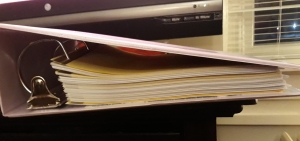 Imagine that you’ve spent the better part of the decade wanting to be a writer. Imagine that writing was a passion from long ago that you’d lovingly and delightedly returned to. Imagine working hard to get to a place where you felt confident in your abilities. Imagine years of schooling, grades you were proud of. Think of your love of words and how much fun you’ve had playing with them. Think of your dreams, and how the written word is the centerpiece of those dreams.
Imagine that you’ve spent the better part of the decade wanting to be a writer. Imagine that writing was a passion from long ago that you’d lovingly and delightedly returned to. Imagine working hard to get to a place where you felt confident in your abilities. Imagine years of schooling, grades you were proud of. Think of your love of words and how much fun you’ve had playing with them. Think of your dreams, and how the written word is the centerpiece of those dreams.
Think about those words going away.
Imagine yourself in an academic setting. You and your fellow students are analyzing why a story does or doesn’t work. You know why. You think the piece is a shoddy bit of writing (or a brilliant one) and you know the exact craft elements that lead you to this conclusion. But you can’t, for the life of you, explain it. The technical words are gone from your mind, and you end up authoritatively stating a jumbled mash-up of a pronouncement that makes it seems as though you don’t have a clue as to what you’re talking about.
Imagine you’re at a party. You keep up with current events, you’re well informed. You’re known for witty little quips that make people laugh and think. You try one of those bon mots, but it falls flat as it refuses to follow the path from your brain to your tongue.
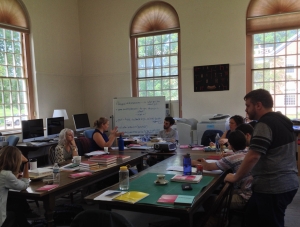
Imagine it’s the first day of class. You try to compliment someone, but words get irredeemably mixed as you say them. They come out sounding like a thinly veiled insult. You try to explain that it came out wrong, that you meant the opposite, but the damage is done. Classmates think you are insincere and mean. They begin to shun you.
Finally, imagine you are writing, and what you hear in your head steadfastly refuses to be written down. The words hide from you. Your thesaurus is a better friend than you ever thought possible—that is, if you can come up with a similar word to the one you want. You usually can’t.
All this has happened to me. And still happens. Writing and interacting are nowhere near as easy or as fun as they used to be. I’ve often felt stupid, or incapable. Sometimes I felt lost. I’ve commonly felt like concussion has stolen who I was from me.
The general public frequently misinterprets the difficulties an individual with aphasia is experiencing and may react as though the person is psychologically ill or mentally retarded. Feelings of social isolation with resulting emotional effects are common to individuals with aphasia. (National Aphasia Association)
Though aphasia might be the most concerning after-effect of brain-injury for a writer, it’s hardly the only one: there’s emotional lability (the inability to control one’s emotions); endocrine imbalances (such as my consistently low thyroid); Vitamin levels that fall to dangerous levels (especially B-12 and D.); sleep disturbances, constant fatigue, inability to concentrate, and an incapacity to handle excess stimulation.
It All Falls Apart (And I Pull It Together Again)
San Francisco State had been my undergrad dream school, but postgrad at that University was different. I was different. All the noise, all the people! Between stupid things I said inadvertently due to aphasia, and stupid things I said intentionally due to emotional lability, I was losing friends fast. I couldn’t handle the competitiveness of grad-school—which was nil in undergrad. Worst of all, I’d lost my superpower: my ability to see possibilities! I couldn’t figure out how to end stories, or even chapters. I couldn’t tell where my life was going. I was losing hope and thinking about quitting writing. Sometimes I thought about quitting living.
I finally saw another doctor.
She asked the right questions, ordered the right tests, prescribed the right medicines. I began to feel better.
Then I got an email from Rita Banerjee, asking if I would reconsider coming to VCFA.

My Emotional Support Animal Parnell “guarding the dorms” from his “security tower.”
A college with small class sizes, individual attention, and a mandate against students competing against each other? Yes please.
Transferring to VCFA wasn’t stress-free. The cross-country drive left me with two weeks of heart palpitations. One semester was all morning classes, leaving me perpetually sleep-deprived (bad for a head-injury). I did that aphasia thing when I first got here. (Yes, that aphasia thing: Intended compliment = insult. *sigh*)
But small class sizes helped, as did the smaller college and living in the “Smallest State Capitol in the
U.S.” I found a new doctor, who sent me to a concussion clinic nearby. I started speech therapy, so writing became easier, and socializing became less embarrassing.
I’m not done yet. I still have work to do. (Psychotherapy is next, for emotional lability and anxiety.) But I feel good about where I am today and about where I’m going.
And yes, knowing where I’m going does mean I got my superpower back.
best Running shoes brand | SUPREME , Fullress , スニーカー発売日 抽選情報 ニュースを掲載!ナイキ ジョーダン ダンク シュプリーム SUPREME 等のファッション情報を配信! – パート 5
The post My Story: How I Lost and Found My Superpower appeared first on VCFA Writing and Publishing Blog.
]]>The post Community Enrichment Classes appeared first on VCFA Writing and Publishing Blog.
]]>Valentyn Smith
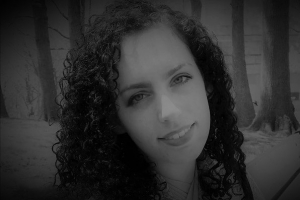
Valentyn is a transplant to Vermont from Brooklyn. She came here originally for our residential program in Writing & Publishing, but found that the low-residency model was a better fit. She earned her MFA in Writing, but came back to W & P for the Certificate in Publishing. Valentyn also works in the library here on campus.
My fellow classmate told me that writing was with her from an early age. As a quiet child, writing was how Valentyn communicated. I’m sure many of us can relate to that sentiment (I know I can!) She remembers having “story movies” in her head, and that continues to this day.
Her family came to the U.S. from Russia seeking political asylum, and she was greatly influenced in art as in life by her mother and grandfather. Valentyn’s mother, a Ukrainian/Russian Jew, was a fine artist and student of Art History, who learned to speak English by reading children’s books to her young daughter. Her grandfather, on the other hand, believed in speaking up, which could have gotten him killed back in the Soviet Union. He imparted that kind of bravery through words to his granddaughter.
Valentyn had her own version of “the Dark Ages” as far as her art goes, and writing stopped being important in her life. However, in college she had her own personal “Renaissance” and communicating again with the written word made her feel like she was coming home! (this is another sentiment that I am certain that other writers can relate to. It seems like so many of us—myself included—have come back to writing.)
One of the most compelling things about her writing is its connection to Russian folklore. She didn’t grow up hearing these stories. Her move to Vermont brought her to the type of tales that have become a motif of her work: Missing her family caused her to study writings from and about their homeland. Russian tales, anthropological texts, oral storytelling traditions and the myths of landscape, full of nature spirits and fantastical elements. She started using the strong, evocative sense of place in these stories to examine her upbringing in New York City. (This has worked well for her. I’ve had just two classes with her, so I’ve only been privy to a tiny bit of her work. But let me tell you, my response has been “MAN! That girl can WRITE!)
The Class
Spell of the Evocative: Setting in Fiction
Valentyn hopes that students of this class will fall in love with setting, and learn to see it not just as place, but also as an extension of character. She wants them to consider our—and our character’s—relationship to the environment and realize that setting is living, breathing, and can even be considered an entity, both in our lives, but also in our writing. Especially in our writing.
In this class a combination of close reading and generative exercises will help students understand the evocative importance of setting. Students will learn—in both reading and writing—to ask “Why this setting?” and “Why this journey?” She wants to teach them, she says, to “carve out the why.”
Transporting the reader is the goal here. When she reads she tries to figure out what does the trick in this regard. She wants to teach her students how to pick out and impart tone, mood and style. They will leave the class with a sense of the difference between these elements. Participants will learn to “follow the smoke to the fire,” to discern what casts the spell that “opens the portal to a raw place.” Finally, they’ll learn how to cast that spell in their own writing.
That just gives me goosebumps! It sounds like a great class from a gifted writer and teacher. Go forth and learn, you Padawan scribes!
You can get more information or buy tickets to the class here.
Also, see the poster below:
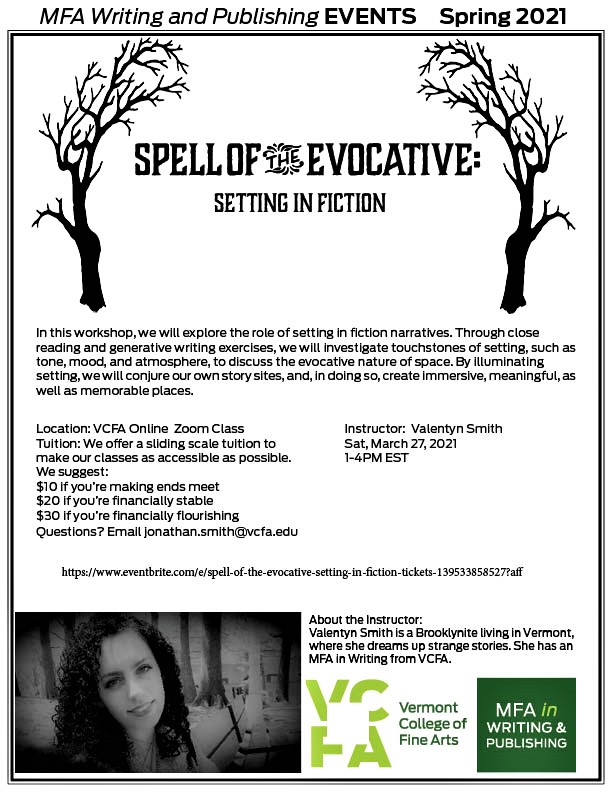 latest Running | Nike Wmns Air Force 1 07 Essential White Silver Gold Women Casual , Cellmicrocosmos Marketplace
latest Running | Nike Wmns Air Force 1 07 Essential White Silver Gold Women Casual , Cellmicrocosmos Marketplace
The post Community Enrichment Classes appeared first on VCFA Writing and Publishing Blog.
]]>The post Reminder: Friday Night Reading Series appeared first on VCFA Writing and Publishing Blog.
]]>Just a reminder that We have our next in a series of readings this Friday night. Join us via Zoom and ENJOY!
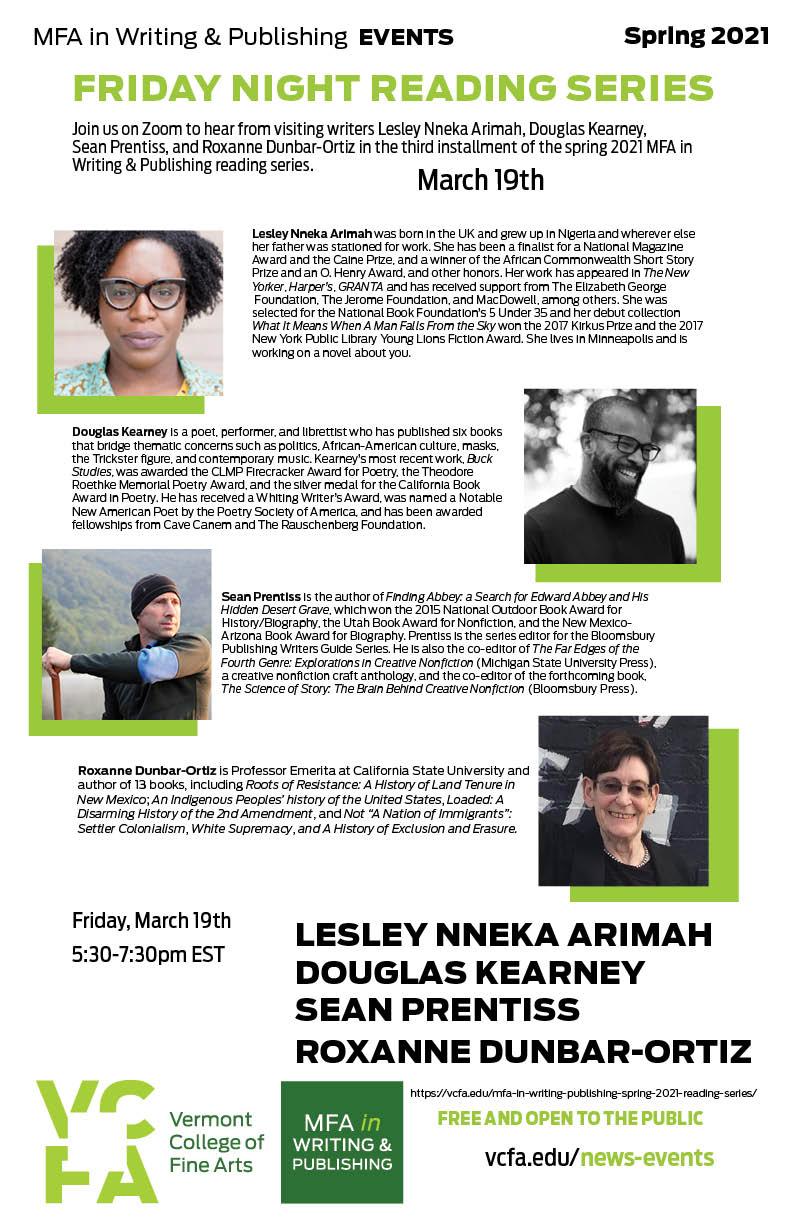 latest Running | NIKE RUNNING SALE
latest Running | NIKE RUNNING SALE
The post Reminder: Friday Night Reading Series appeared first on VCFA Writing and Publishing Blog.
]]>The post Congratulations to Alumnx Lizzy Fox appeared first on VCFA Writing and Publishing Blog.
]]>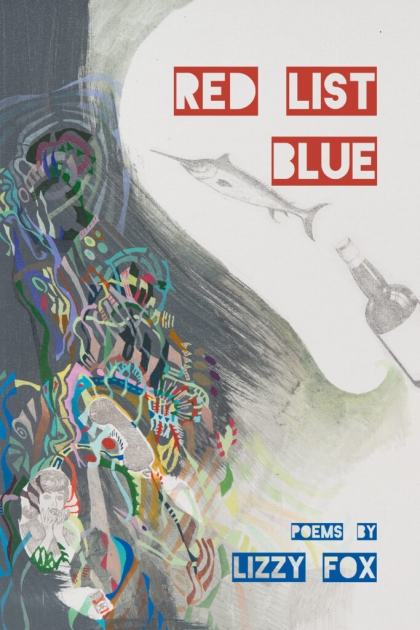
Lizzy is a graduate of the MFA in Writing program here at VCFA, and was the Assistant Director of the Writing & Publishing program until July of 2020. We love and miss her. She’s a bright and shining light who was ready to show each of us the way. If we ever had a question, the answer was always “Ask Lizzy.” But we are so proud of her for following her goals and moving on when she needed to. She left to attend the Teacher Apprenticeship Program at Champlain College where she will earn her Vermont teaching license and go on to teach high school English. The best of success in this endeavor, Lizzy!
And now she has a book out!
This is not a typical book of poetry. Lizzy came out of the slam poetry scene and sound is so important to her work. Her poetry resonates strongly with me and this is probably why. (I was a street poet in San Francisco in the 80s, and that scene melded into the slam scene.) I LOVE poetry that’s meant to be read OUT LOUD! Lizzy told us that before she began her MFA program she wasn’t very interested in how poetry looked on the page. But—despite still being concerned about the sound—she has come to appreciate carefully planning a poem’s look.
She began the reading with “Empty/Full” a poem about love and cold, which closes with these lines:
“Have you seen how the light bends off the ice these days?
The way snow becomes the sun? How empty the trees,
always reaching, never in want?”
Lovely lines, aren’t they?
Lizzy read several poems that night, and even when she thought she’d read the last one, Valentine’s Day, people asked for more: “Read Beryl,” they asked. “Read A minute to seven.” So, of course, she did.
Lizzy’s poetry–or at least what she read that night–seem to be invariably about love, but all kinds of love: not necessarily romantic love, but…that too. Even the poems that are serious have a light air to them, like pixies dancing in a field. I had thought I’d lost my taste for poetry, but Lizzy may just have revived it. I will leave you with my favorite lines of the night, from the poem Blue:
” …she was a painter too–my grandmother.
She dyed her hair red and used yellow washes to make
the canvas brighter. She talked about the black hole
in her brain that ate memories. Later I learned
it was martinis. I’m beginning to notice a pattern.
The sky on a sunny day but not on a cloudy one. Sapphires
except not all of them. Did you know that sapphires
come in every color except red? Red sapphires are called rubies.”
Get the book/Find Out About Future Readings
You can order Red List Blue here.
Lizzy will be reading Friday night at the Writing & Publishing Reading Series (here) along with current Assistant Director Shin Yu Pai, visiting faculty Tim Horvath, and visiting writer Prageeta Sharma.
You can find out about Lizzy’s other readings here.
Sports brands | Air Jordan 1 Retro High OG Retro High OG Hyper Royal 555088-402 , Fitforhealth
The post Congratulations to Alumnx Lizzy Fox appeared first on VCFA Writing and Publishing Blog.
]]>The post Community Enrichment Classes appeared first on VCFA Writing and Publishing Blog.
]]>Hassan AJ
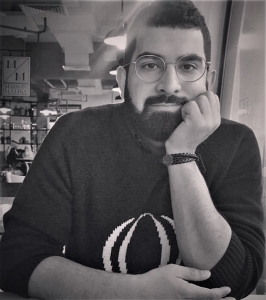 A self described nomad, Hassan AJ is an international student in his second year at VCFA. Five or six years ago he was a pre-med student secretly taking online writing classes. He was lured away from medicine when he fell in love with language itself, from the sentence level on. (In other words, from the micro–to the macro) He’s fascinated by the ability to “assemble language on the page to make the world less abstract and more tangible.”
A self described nomad, Hassan AJ is an international student in his second year at VCFA. Five or six years ago he was a pre-med student secretly taking online writing classes. He was lured away from medicine when he fell in love with language itself, from the sentence level on. (In other words, from the micro–to the macro) He’s fascinated by the ability to “assemble language on the page to make the world less abstract and more tangible.”
Hassan has concentrated on historical fiction in his time at VCFA, writing a novel based on his family’s ancestral story. However, 2020 has made him look closer to home: introspection has become the name of the game. As he puts it “personal essay and solitude go hand in hand, and what is quarantine but forced solitude?” He also feels that personal essay has a therapeutic component to it that he–and society–needs after a year of Covid.
In other words, this is a timely class for us all after the year we’ve had!
The Class
“In solitude, a mask comes off that allows the personal essayist to look back at the past and extract a truth about the human condition. For centuries, the personal essay’s goal has been to make the bitter awareness of the reality of our existence ‘appetizing and even amusing’” (that last bit is a quote from Lopate, but the rest is pure Hassan).
Three essays will be discussed in the class:
The Crack-Up, by F. Scott Fitzgerald
In this essay, Fitzgerald, like us, is in solitude. His life is on pause. He uses that pause to find his own disillusionment in life. Fitzgerald “teaches us that facing the past, with all the demons of the present, can help us unmask the self, and understand our follies.”
Goodbye to All That, by Joan Didion
Didion uses this essay, written in Los Angeles, to “make sense of the disenchantment in her life” by viewing her past in New York City through the lens of space and time, seeking to understand what went wrong.
Street Haunting, by Virginia Wolfe
In this essay Wolfe takes an opposite tack from Fitzgerald and Didion, by concentrating not on isolation and introspection, but on her escape from such–and from herself–as she wanders the streets of London where “she has her grip tight on the enchanted life.”
“Hassan will use these three pieces to show how personal essay can help us interrogate our lives and our own inherent disenchantment, or the compulsion to cling to life’s enchantment.”
What enchantment or disenchantment might you need to concentrate on after a year of solitude and confinement? Hassan’s class may just point you in the right direction. The class is on February 27th between 1-4pm est. all classes are online. You can register here.
Sports brands | Releases Nike Shoes
The post Community Enrichment Classes appeared first on VCFA Writing and Publishing Blog.
]]>The post Finally, Finally, Finally appeared first on VCFA Writing and Publishing Blog.
]]> 2020 is finally over. It’s been a tough year, between quarantining, masking, and having all of our classes on Zoom. (Zoom fatigue is real!) But it’s finally over and 2021 has begun. Classes start this week, second years are ensconced in their rooms working on their theses, and, to make it all even better, we got our first real dump of snow. Winter is here (finally) along with the new semester. We may have had a brown Christmas, and a dry New Year, but now we are in the midst of Vermont’s
2020 is finally over. It’s been a tough year, between quarantining, masking, and having all of our classes on Zoom. (Zoom fatigue is real!) But it’s finally over and 2021 has begun. Classes start this week, second years are ensconced in their rooms working on their theses, and, to make it all even better, we got our first real dump of snow. Winter is here (finally) along with the new semester. We may have had a brown Christmas, and a dry New Year, but now we are in the midst of Vermont’s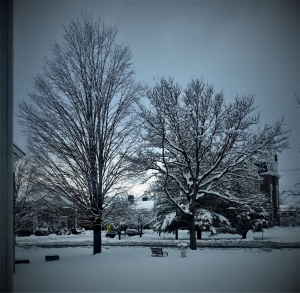 winter wonderland. I couldn’t be happier, as I stare out my dorm room window.
winter wonderland. I couldn’t be happier, as I stare out my dorm room window.

Visiting Faculty and Module choices
Our first module offers classes that are of a theme, in a way. Not novel writing, or poetry, or even CNF, but Screenwriting and Playwriting, taught by returning faculty Tim Kirkman and Amahl Khouri.
Tim Kirkman
 Writer/Director Tim Kirkman is an Emmy, Gotham, GLAAD and Independent Spirit Award nominee. He has produced a documentary and directed three feature films. His course will teach VCFA students the basics of writing screenplays. By the end of the module each student will have written a 3 to 6 pages for a 3-5 minute short film.
Writer/Director Tim Kirkman is an Emmy, Gotham, GLAAD and Independent Spirit Award nominee. He has produced a documentary and directed three feature films. His course will teach VCFA students the basics of writing screenplays. By the end of the module each student will have written a 3 to 6 pages for a 3-5 minute short film.
Amahl Khouri
Berlin Based Amahl Khouri is a queer transgender Jordanian documentary playwright and play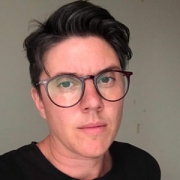 producer. He’s the author of several plays including She He Me and No Matter Where I Go and part of the Climate Change Theater Action. His course on playwriting is entitled Inside Looking Out: Monodrama/Autobiography that Finds the Self Elsewhere. Students will generate material towards their own personal monodrama. (a one person play about oneself, along the lines of Fleabag and Latin History for Morons.) It sounds like an exciting class, and I can say from experience that Amahl is an engaging teacher as well as a sweetheart.
producer. He’s the author of several plays including She He Me and No Matter Where I Go and part of the Climate Change Theater Action. His course on playwriting is entitled Inside Looking Out: Monodrama/Autobiography that Finds the Self Elsewhere. Students will generate material towards their own personal monodrama. (a one person play about oneself, along the lines of Fleabag and Latin History for Morons.) It sounds like an exciting class, and I can say from experience that Amahl is an engaging teacher as well as a sweetheart.
Spring 2021 Reading Series
Tim and Amahl will be with us for the first in our reading series on February 5th, along with Felicia Rose Chavez and poet Evie Shockley. Chavez is an award-winning educator and author of The Anti-Racist Writing Workshop: How to Decolonize the Creative Classroom. Shockley is the author of the new black and semiautomatic, winners of the Hurston/Wright Legacy Award. semiautomatic was a finalist for the Pulitzer and LA Times Book Prizes.
Please join us!
The post Finally, Finally, Finally appeared first on VCFA Writing and Publishing Blog.
]]>